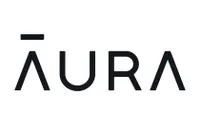How to Guard Against Identity Theft in 2025
Scammers are getting better at impersonating legitimate businesses.


Profit and prosper with the best of Kiplinger's advice on investing, taxes, retirement, personal finance and much more. Delivered daily. Enter your email in the box and click Sign Me Up.
You are now subscribed
Your newsletter sign-up was successful
Want to add more newsletters?

Delivered daily
Kiplinger Today
Profit and prosper with the best of Kiplinger's advice on investing, taxes, retirement, personal finance and much more delivered daily. Smart money moves start here.

Sent five days a week
Kiplinger A Step Ahead
Get practical help to make better financial decisions in your everyday life, from spending to savings on top deals.

Delivered daily
Kiplinger Closing Bell
Get today's biggest financial and investing headlines delivered to your inbox every day the U.S. stock market is open.

Sent twice a week
Kiplinger Adviser Intel
Financial pros across the country share best practices and fresh tactics to preserve and grow your wealth.

Delivered weekly
Kiplinger Tax Tips
Trim your federal and state tax bills with practical tax-planning and tax-cutting strategies.

Sent twice a week
Kiplinger Retirement Tips
Your twice-a-week guide to planning and enjoying a financially secure and richly rewarding retirement

Sent bimonthly.
Kiplinger Adviser Angle
Insights for advisers, wealth managers and other financial professionals.

Sent twice a week
Kiplinger Investing Weekly
Your twice-a-week roundup of promising stocks, funds, companies and industries you should consider, ones you should avoid, and why.

Sent weekly for six weeks
Kiplinger Invest for Retirement
Your step-by-step six-part series on how to invest for retirement, from devising a successful strategy to exactly which investments to choose.
Eva Velasquez is president and CEO of the Identity Theft Resource Center (ITRC), a nonprofit that supports victims of identity theft. Here, she talks to Kiplinger about key identity theft problems to know about in 2025.
What are the most common identity theft schemes?
Our most recent contact center data shows that 51% of personally identifiable information (PII) compromises — which take place when someone is trying to access your personal information — come from scams, with the most common types of scams being impersonation and employment scams.
Impersonation scams occur when whoever is on the other end of the interaction is not who they say they are. They may say they’re from Amazon and your delivery is delayed, or they may pose as a credit card representative, asking whether you authorized a purchase.
With job and employment scams, we’re seeing fraudulent postings on legitimate sites such as Indeed and LinkedIn, as well as unsolicited text messages and emails from phony recruiters.
What trends in ID theft do you expect to see in 2025?
It’s hard to predict the next global event, such as a pandemic or natural disaster, but that’s what the scammers love to leverage. During those events, consumers know something is going on but don’t have a lot of information, and then they get a bunch of requests for money or information from scammers.
From just $107.88 $24.99 for Kiplinger Personal Finance
Become a smarter, better informed investor. Subscribe from just $107.88 $24.99, plus get up to 4 Special Issues

Sign up for Kiplinger’s Free Newsletters
Profit and prosper with the best of expert advice on investing, taxes, retirement, personal finance and more - straight to your e-mail.
Profit and prosper with the best of expert advice - straight to your e-mail.
Business impersonation, which occurs when someone claims to be from a company, such as Amazon or your bank, is going to continue to grow in 2025 because bad actors can easily purchase stolen personal information on the dark web and use it to seem credible when they contact victims.
There are also a lot of social media account takeovers, in which bad actors hack into someone’s account and then reach out to their connections and friends to ask for donations and information. Social media companies aren’t responding quickly enough to these takeovers, so people end up walking away from hacked accounts. We have a proliferation of accounts that are no longer in the original owner’s control.
Save Up to 68% On Aura Identity Theft Protection
Aura provides everything you need to protect your identity. Get up to 250x faster fraud alerts, 3-bureau credit monitoring, up to $5 million in identity theft insurance, and 24/7 U.S.-based fraud support. It also includes an antivirus, VPN and password manager for proactive security. Kiplinger readers can save up to 68% when they sign up.
Preferred partner (What does this mean?)
What can people do to protect themselves from scams?
Approach all digital communication with skepticism. If you didn’t initiate the contact with an entity that is requesting information or money from you, go to the source and verify that it reached out to you.
That may mean calling the phone number on your credit card if someone purports to be from your card company, responding to a voice message from someone who says they’re from your utility company by finding the company’s number online, or checking the message center in your Amazon account if you receive an email or text message from someone who says they work for Amazon.
Our recent data also shows that 16% of PII compromises were the result of lost or stolen items, so remember that your smartphone and other devices are just as important as your wallet, and you need to treat them as such.
Make sure that a lock screen is enabled on all your devices, and use biometric authentication of your face or fingerprint. Enable location detection for your device and the ability to remotely delete information from it if it is stolen. Finally, freezing your credit is one of the most robust measures you can take to prevent fraud.
What should you do if your personal information is involved in a data breach?
You have limited options once your information has been exposed, but you can react quickly to news of a breach. The most important first step is to understand what specific data of yours was compromised. If your username and password were stolen, you should immediately change your password on any account where you’ve used the compromised password.
We have a free tool on the ITRC website where you can see whether a company has had a breach before you do business with it. You can also sign up to get an alert if a company you do business with experiences a breach in the future.
Note: This item first appeared in Kiplinger Personal Finance Magazine, a monthly, trustworthy source of advice and guidance. Subscribe to help you make more money and keep more of the money you make here.
Related content
Profit and prosper with the best of Kiplinger's advice on investing, taxes, retirement, personal finance and much more. Delivered daily. Enter your email in the box and click Sign Me Up.

Mallika Mitra is an experienced business and financial journalist. In addition to Kiplinger, her work can be found in Barron's, CNBC, Bloomberg News, Bankrate, USA Today and more. She was previously the investing editor at Money where she wrote a weekly newsletter on stocks, bonds, cryptocurrencies and more.
-
 The New Reality for Entertainment
The New Reality for EntertainmentThe Kiplinger Letter The entertainment industry is shifting as movie and TV companies face fierce competition, fight for attention and cope with artificial intelligence.
-
 Stocks Sink With Alphabet, Bitcoin: Stock Market Today
Stocks Sink With Alphabet, Bitcoin: Stock Market TodayA dismal round of jobs data did little to lift sentiment on Thursday.
-
 Betting on Super Bowl 2026? New IRS Tax Changes Could Cost You
Betting on Super Bowl 2026? New IRS Tax Changes Could Cost YouTaxable Income When Super Bowl LX hype fades, some fans may be surprised to learn that sports betting tax rules have shifted.
-
 How Much It Costs to Host a Super Bowl Party in 2026
How Much It Costs to Host a Super Bowl Party in 2026Hosting a Super Bowl party in 2026 could cost you. Here's a breakdown of food, drink and entertainment costs — plus ways to save.
-
 3 Reasons to Use a 5-Year CD As You Approach Retirement
3 Reasons to Use a 5-Year CD As You Approach RetirementA five-year CD can help you reach other milestones as you approach retirement.
-
 How to Watch the 2026 Winter Olympics Without Overpaying
How to Watch the 2026 Winter Olympics Without OverpayingHere’s how to stream the 2026 Winter Olympics live, including low-cost viewing options, Peacock access and ways to catch your favorite athletes and events from anywhere.
-
 Here’s How to Stream the Super Bowl for Less
Here’s How to Stream the Super Bowl for LessWe'll show you the least expensive ways to stream football's biggest event.
-
 The Cost of Leaving Your Money in a Low-Rate Account
The Cost of Leaving Your Money in a Low-Rate AccountWhy parking your cash in low-yield accounts could be costing you, and smarter alternatives that preserve liquidity while boosting returns.
-
 This Is How You Can Land a Job You'll Love
This Is How You Can Land a Job You'll Love"Work How You Are Wired" leads job seekers on a journey of self-discovery that could help them snag the job of their dreams.
-
 We Inherited $250K: I Want a Second Home, but My Wife Wants to Save for Our Kids' College.
We Inherited $250K: I Want a Second Home, but My Wife Wants to Save for Our Kids' College.He wants a vacation home, but she wants a 529 plan for the kids. Who's right? The experts weigh in.
-
 4 Psychological Tricks to Save More in 2026
4 Psychological Tricks to Save More in 2026Psychology and money are linked. Learn how you can use this to help you save more throughout 2026.
